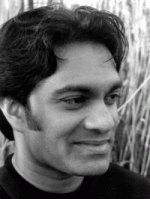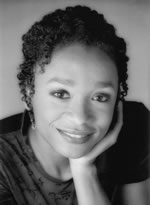Hollywood Actress
 CCH Pounder - the initials stand for Carol Christine Hilaria - was born in Georgetown, Guyana. She attended a school for the arts in Sussex, England, and Ithica College in New York State. She has appeared in dozens of movies, and has had continuing roles on television. Since her debut in All That Jazz in 1979, Pounder, 53, has had roles in LA Law, The West Wing, Law & Order and The Practice.
CCH Pounder - the initials stand for Carol Christine Hilaria - was born in Georgetown, Guyana. She attended a school for the arts in Sussex, England, and Ithica College in New York State. She has appeared in dozens of movies, and has had continuing roles on television. Since her debut in All That Jazz in 1979, Pounder, 53, has had roles in LA Law, The West Wing, Law & Order and The Practice.Often overlooked, The Shield star CCH Pounder finds solace in her craft.
SHE has had a long acting career.
But in the last 25 years, veteran actress CCH (Carol Christine Hilaria) Pounder has got only two Satellite Awards to show for, which she won for her role in US series The Shield.
She plays detective Claudette Wyms opposite aggressive detective Vic Mackey (Michael Chiklis), who played The Thing in the movie Fantastic Four.
Since her debut in All That Jazz in 1979, Pounder, 53, has had roles in LA Law, The West Wing, Law & Order and The Practice.
Besides the two awards, Pounder also received Emmy nominations for her roles in ER and The X-Files.
FRUSTRATING
But the lack of awards does get somewhat frustrating, Pounder said in a recent phone interview.
'Sometimes, it bothers me that I haven't won an Emmy. I've got nominations for many awards, and yet I don't win.
'It can be tiring listening to the roll call of names, only to find out you're not the winner. But it's part and parcel of the job. I'm getting used to this.'
Still, she said, it would be lovely to win an Emmy in her lifetime.
'I would be very angry if I was given a post-humous Emmy.'
Awards or not, Pounder insisted that she has always loved and enjoyed acting despite her family's initial disapproval.
Born in Guyana, she attended Ithaca College in New York where her talents caught the attention of Professor Earl McCarroll from the drama department.
Upon graduation, Prof McCarroll urged her to join a regional theatre company, and she moved to Monmouth, Maine.
She said: 'Being immigrants, my family preferred me to be in a more professional job, like a doctor or a lawyer.'
But now they've come to terms with her profession, she added.
While her role in The Shield was originally written for a man, Pounder insisted she did not get the part because she had worked with director Clark Johnson earlier on the TV series Boycott.
'You have to prove yourself,' she said, 'I was the only girl who went for the audition, but my agent said 'Come on, you can do it.'
'I was known for playing women who get raped and beaten. But Claudette's character is one of a strong leading lady, a tough cookie.'
Pounder was full of praise for her co-stars, especially Glenn Close.
She said: 'Glenn was really fun to work with. It was nice to have another woman around as the cast is made up of mainly men.'
From The Electric New Paper
Hollywood Actress Rediscovers African Roots
Actress CCH Pounder has made a name for herself in American television, where she now has a major role in the police drama The Shield. The actress has come a long way from her childhood in Guyana to the lights of Hollywood, and along the way has rediscovered her African heritage.
The Afro-Caribbean actress reconnected with her roots through her husband, Senegalese-born anthropologist Boubacar Kone. The two met in Los Angeles and married 14 years ago. About that time, he had an idea.
"I always said, I have to go back and do something about Senegal. So I'm not somebody who's going to build a church or synagogue or mosque, so we don't have a museum culture. So I said it's much better to have a museum," Mr. Kone explained.
He started an art museum, the Musee Boribana, just outside the Senegalese capital of Dakar. His wife shares his interest in contemporary African art. At first, she showcased art in their home in Los Angeles, and two years ago she opened her own gallery in the city.
"It's still the focus of introducing African artists to the United States, but as I'm from the Caribbean, I introduce Caribbean artists, and African-American artists as well," explained the actress.
CCH - the initials stand for Carol Christine Hilaria - was born in Georgetown, Guyana. She attended a school for the arts in Sussex, England, and Ithica College in New York State. She has appeared in dozens of movies, and has had continuing roles on television in the earlier hospital drama ER, as well as The Shield.
She joined performers Robert Guillaume and his wife, Donna Brown Guillaume, Alfree Woodard, Blaire Underwood and others in a group eventually called Artists for a New South Africa. They had been asked by political activist Nelson Mandela to speak out against apartheid, the system of racial separation imposed on South Africa by its former white government.
"Because we are artists in our different genres, musicians or actors and so on, the media often give us a platform for our voices to be heard," she said. "And so Nelson Mandela asked if there were African-American artists who could help service the breaking of apartheid, and we were one of many, many groups."
With democratization and the election of Nelson Mandela as South Africa's president, she says the group has changed its focus.
"We realized the enormous amount of work that had to be done in South Africa. And so we're now working with pediatric AIDS, AIDS educational information, getting books and services there. We worked along with Habitat for Humanity building houses," she explained. "So it's a lot of lending our voice to other people's projects, and getting them out there so that they can be serviced."
So far, the group has channeled eight million dollars into South African aid projects.
CCH and Boubacar divide their time between Los Angeles and Dakar, where they have a home on an island near the city. They say they are bridging two cultures, bringing together the world of contemporary Africa and the world of Hollywood entertainment.
From VOA News
















